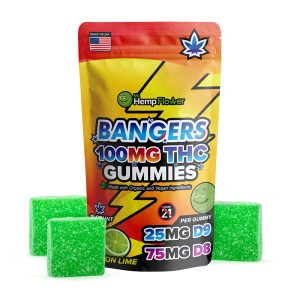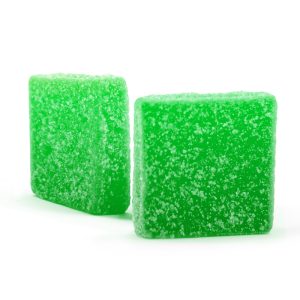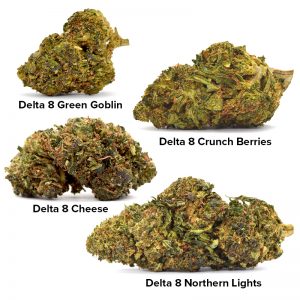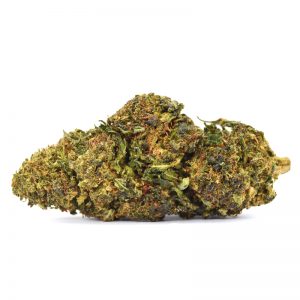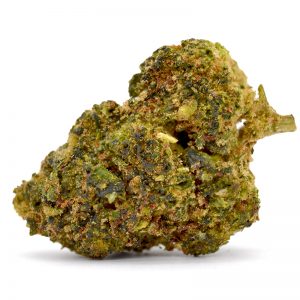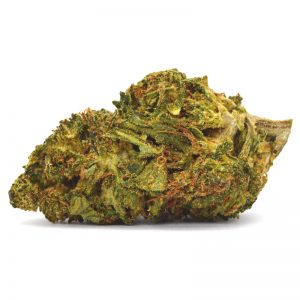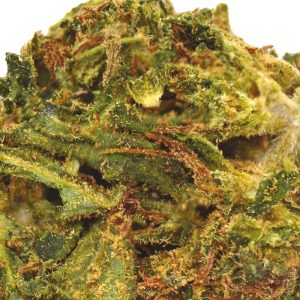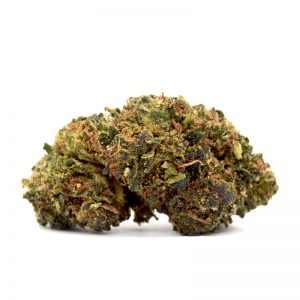Delta 8 THC And The Endocannabinoid System
Delta 8 THC gives you a mild euphoria that’s so pleasant it feels like the coziest, most comfortable dream. What does this compound affect in your body to produce such feelings? And, how differs from other cannabinoids in helping you relax and de-stress?
The short answer is: it all comes from its interaction with the endocannabinoid system. This article covers everything you need to know about the relationship between delta 8 THC and the endocannabinoid system.
What Is Delta 8 THC?
Delta 8 tetrahydrocannabinol or delta 8 THC is a natural psychoactive cannabinoid in the hemp plant that occurs in trace amounts. It’s created as a by-product of the degradation of delta 9 THC in the hemp flower. So, concentrated amounts of delta 8 are made in a lab from hemp-derived CBD through the process of isomerization.
A delta 8 high feels like a floaty sensation — uplifting but calm and mellow. This cannabinoid offers a very smooth experience that doesn’t leave you too lethargic or sedated.
What Is The Endocannabinoid System?
Identified in the 1990s by researchers who were exploring delta 9 THC, the endocannabinoid system (ECS) is a complex, vast network of receptors and enzymes [1]. Researchers continue to study this system to understand it fully, and in the process, they have discovered that the ECS helps regulate and maintain several critical biological processes, including:
- Immunity
- Sleep
- Memory
- Mood
- Stress
- Appetite
- Reproduction and fertility
The role of the ECS is to maintain balance or homeostasis in the body. It’s made up of three core parts: endocannabinoids, receptors, and enzymes. Endocannabinoids are molecules produced by the body that are similar to plant cannabinoids. The two identified endocannabinoids are anandamide (AEA) and 2-arachidonoylglycerol (2-AG).
Every part of the endocannabinoid system can interact with plant-derived cannabinoids, but the receptors play a special role. The CB1 and CB2 receptors are the two primary endocannabinoid receptors found in the central nervous system (CB1) and the immune cells (CB2). Enzymes are the third part of the ECS and are responsible for breaking down endocannabinoids after carrying out their role.
How Does Delta 8 THC Interact With The Endocannabinoid System?
Delta 8 THC has an affinity to the CB1 receptors to produce a euphoric effect.
Delta 8 THC and the CB1 Receptor
Tetrahydrocannabinols typically bind to the CB1 receptor group in the brain — which has been linked to the brain’s system of reward that governs the response to healthy pleasurable behaviors like eating and sex [2].
Although both delta 8 THC and delta 9 THC have a strong affinity to the CB1 receptor, studies show that delta 8’s binding affinity is three times lower than delta 9 [3].
The reduced potency of delta 8 means that this cannabinoid is a partial agonist of the CB1 receptor, meaning it has a weaker binding affinity. Delta 8 THC also shows cannabimimetic activity or similar pharmacological effects to cannabis, so that’s why you experience an increased euphoria and cognitive distortions [4].
Delta 8 THC and CB2 Receptors
We know very little about the connection between delta 8 THC and the CB2 receptors. One study showed that THC might have the same affinity to CB2 receptors as to CB1 receptors — and might possess slow efficacy at this receptor [5].
The CB2 receptors are spread out through the immune system and aren’t known to lead to psychoactive effects. Delta 8 shows some immune-related effects, which might mean that it interacts with these receptors in the body.
Although we need more evidence to support the activity of delta 8 in the body and brain, it’s clear that this cannabinoid interacts with the endocannabinoid system.
Potential Benefits And Side Effects of Delta 8 THC
Potential Benefits
Delta 8 THC possesses multiple benefits, and users love that it’s a milder version of THC. This cannabinoid may help with:
- Nausea and vomiting — some studies show that this cannabinoid possesses antiemetic properties [6].
- Excessive worry and overthinking — studies have shown delta 8 THC may possess anxiolytic effects.
- Pain and discomfort — the relaxing properties of this cannabinoid may ease discomfort and help with pain.
- Low appetite — THC is known for its effects on appetite, known as “the munchies.” Although causing it with a lower intensity, delta 8 could increase appetite thanks to this phenomenon.
- Lack of sleep — delta 8 THC has sedative effects that may help some users relax before sleep.
- Irritability — once you take a dose of this compound, all irritability disappears.
Everyone is different, so the effects of this compound will vary from person to person. In general, users enjoy the compound’s uplifting and relaxing effects.
Potential Side Effects
Delta 8 THC is more stable than traditional THC, so it has a longer shelf-life. It also may provide the same benefits as delta 9 THC but with fewer adverse effects. According to research, some of the reported side effects of this compound include [7]:
- Cognitive distortion
- Difficulty concentrating
- Short-term memory problems
- Anxiety and paranoia
- Altered sense of time
Research showed that anxiety and paranoia happen in the lowest percentage of people who take delta 8 THC. So, these two side effects happen occasionally, making delta 8 a more suitable option than delta 9.
How Does Delta 8 THC Compare to Other Cannabinoids?
Delta 8 THC vs. Delta 9 THC
Although extremely similar, these two tetrahydrocannabinols are not the same. Delta 8 and delta 9 are isomers, meaning they have the same number of atoms in their structure but with a slight difference in the placement of their double bond.
In delta 9 THC, the double bond is on the ninth carbon chain, while in delta 8 on the eighth. These two compounds are named after the placement of the double bond, which connects two carbon atoms. Because of this, delta 8 and delta 9 have different properties, and although similar, the effects they have on the mind and body differ.
That being said, both compounds are a tetrahydrocannabinol and bind to the body’s cannabinoid receptors. As a result, they produce a psychoactive “high,” with the difference that delta 8 is 50% to 75% as potent as traditional THC. Because delta 9 is more intense, it remains a Schedule I drug on a federal level.
If you want to experience the difference between these two cannabinoids, try our 100% legal Delta 9 THC Sleep Gummies. They are a mix of melatonin, cannabinol (CBN), or the sleep cannabinoid, and 10 mg of hemp-derived delta 9 THC. The total THC level in a gummy doesn’t exceed the federal threshold.
Delta 8 THC vs. CBD
Delta 8 THC and cannabidiol (CBD) are very different. Delta 8 is psychoactive, alters the mind, and is far more potent than CBD. Cannabidiol is extracted from the hemp flower trichomes through CO2 extraction, while delta 8 THC is produced from CBD and catalysts through isomerization.
Regarding potency, delta 8 THC has a stronger, more euphoric effect that’s different from CBD’s rich “body high” that feels cozy and energetic. While you won’t find a delta 8 THC flower in nature, the hemp flower is also known as CBD flower due to CBD’s dominance.
If you want to taste the real difference between delta 8 THC and CBD, try our delicious, full spectrum Delta 8 THC Gummies in a mixed berry flavor. For an accurate comparison, go for our potent full spectrum CBD Gummies that pack a punch even for seasoned users.
Delta 8 THC vs. HHC
Hexahydrocannabiol (HHC) is the hydrogenated version of delta 9 and has nearly the same effects as THC. This cannabinoid is more potent than delta 8 THC, but slightly less potent than delta 9 THC.
If you want to taste the difference between delta 8 THC and HHC, try our premium HHC gummies. They are available in the Passion Fruit flavor, and each gummy contains 50 mg of HHC. Beginners should go for a lower dose by cutting the gummy into several pieces to avoid taking too strong a dose.
Why Buy Delta 8 THC From Mr. Hemp Flower?
Mr. Hemp Flower offers premium delta 8 THC that has been tested and comes with a Certificate of Analysis. Local farmers cultivate the hemp flower we use in North Carolina, Oregon, and Colorado. It’s grown organically, under the highest standards, and is clean and tested by a third-party lab.
If you are looking for high-quality products, it’s important to find a reputable source that guarantees the purity of the delta 8 distillate. From delta 8 flower to gummies, we offer only premium products you can trust.
Final Thoughts — Delta 8 and The Endocannabinoid System
Delta 8 THC interacts with the endocannabinoid system to produce intoxicating effects and an array of benefits. This compound is more potent than CBD and less potent than delta 9 THC, but it doesn’t naturally occur in the hemp plant in high concentrations.
Delta 8 THC is known for its pleasant effects, like relaxation, calmness, clarity, and elevated mood. It causes this by interacting with the cannabinoid receptors in the body.
FAQs on Delta 8 And The Endocannabinoid System
Does delta 8 affect cannabinoid receptors?
Research shows that delta 8 THC has an affinity toward the CB1 receptor located in the brain. THC affects the CB2 receptors spread out in the immune system, but more research is needed on delta 8’s affinity towards this receptor.
Does delta 8 affect CB1 receptors?
Delta 8 THC interacts with the endocannabinoid system — particularly the CB1 receptors in the brain. Although it doesn’t bind to the CB1 receptors as strongly as delta 9 THC does, this interaction causes the euphoric feeling of “high.”
What are the effects of delta 8 THC?
This cannabinoid causes similar effects as delta 9 THC but milder, including euphoria, relaxation, and a pleasant subtle intoxication.
What happens if you take too much delta 8?
If you take too much delta 8 you will have a really bad experience with extreme side effects like paranoia, anxiety, nausea, and confusion. So far, there aren’t reports of a delta 8 overdose, but a high dose doesn’t typically produce an enjoyable experience.

